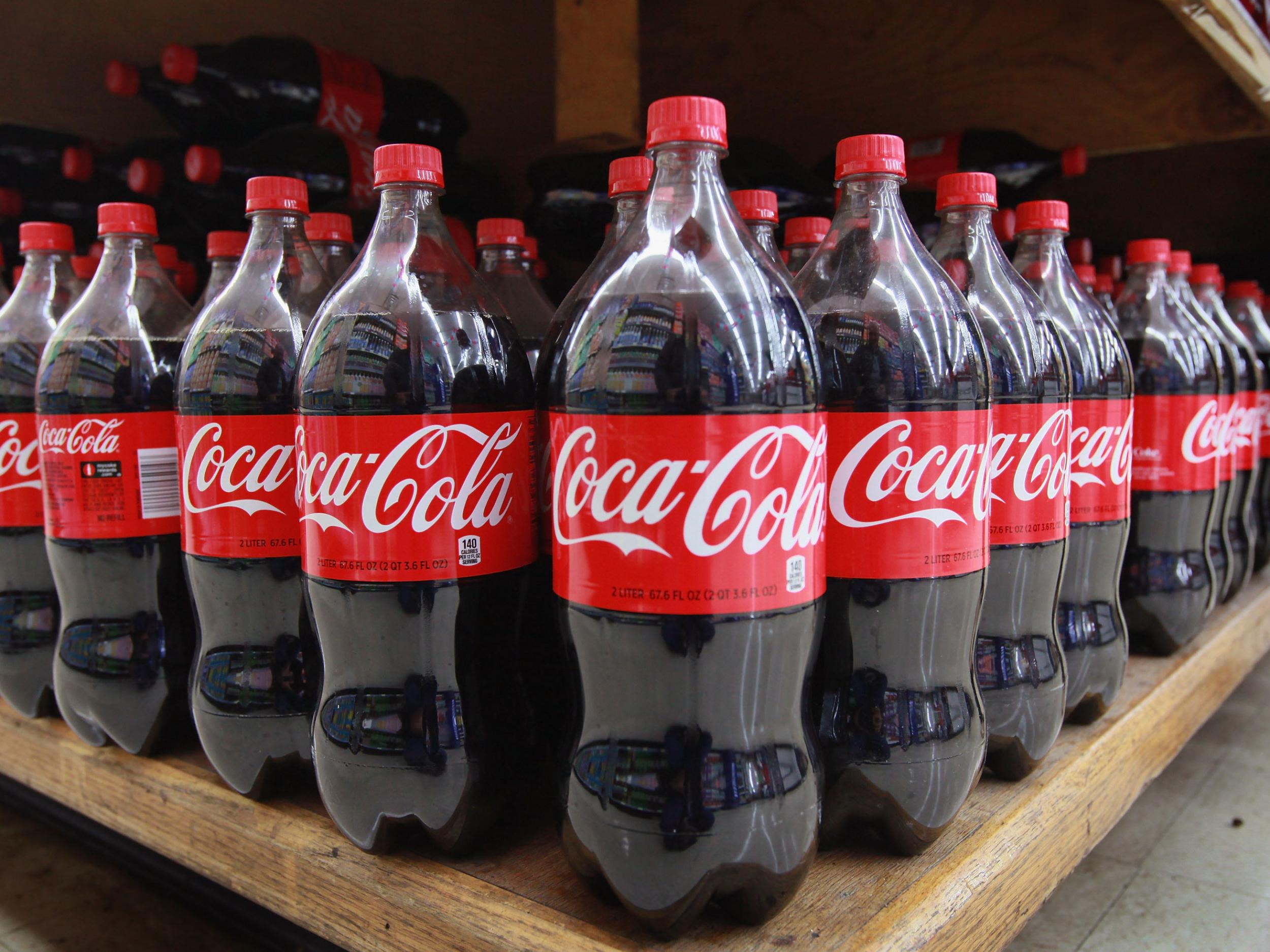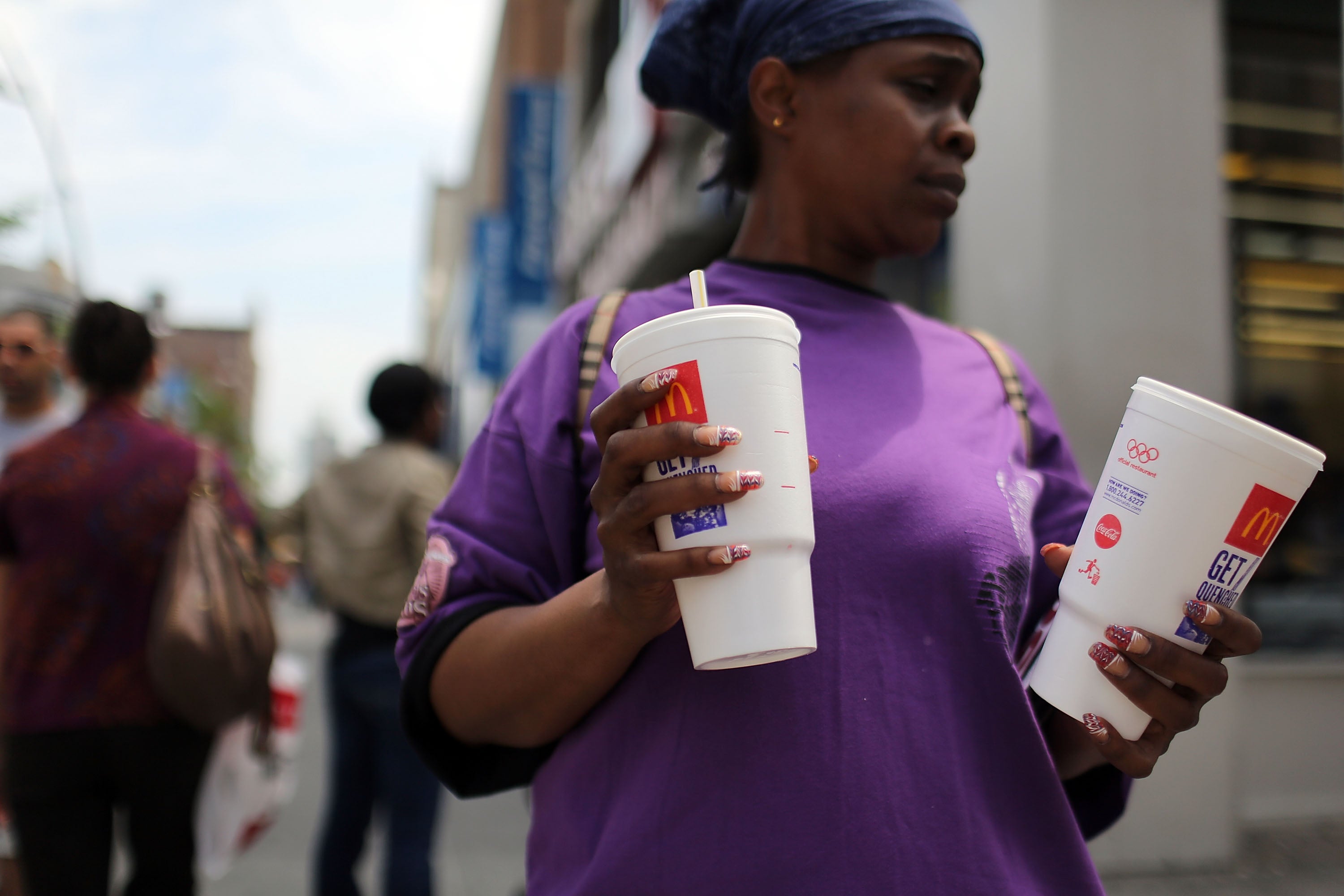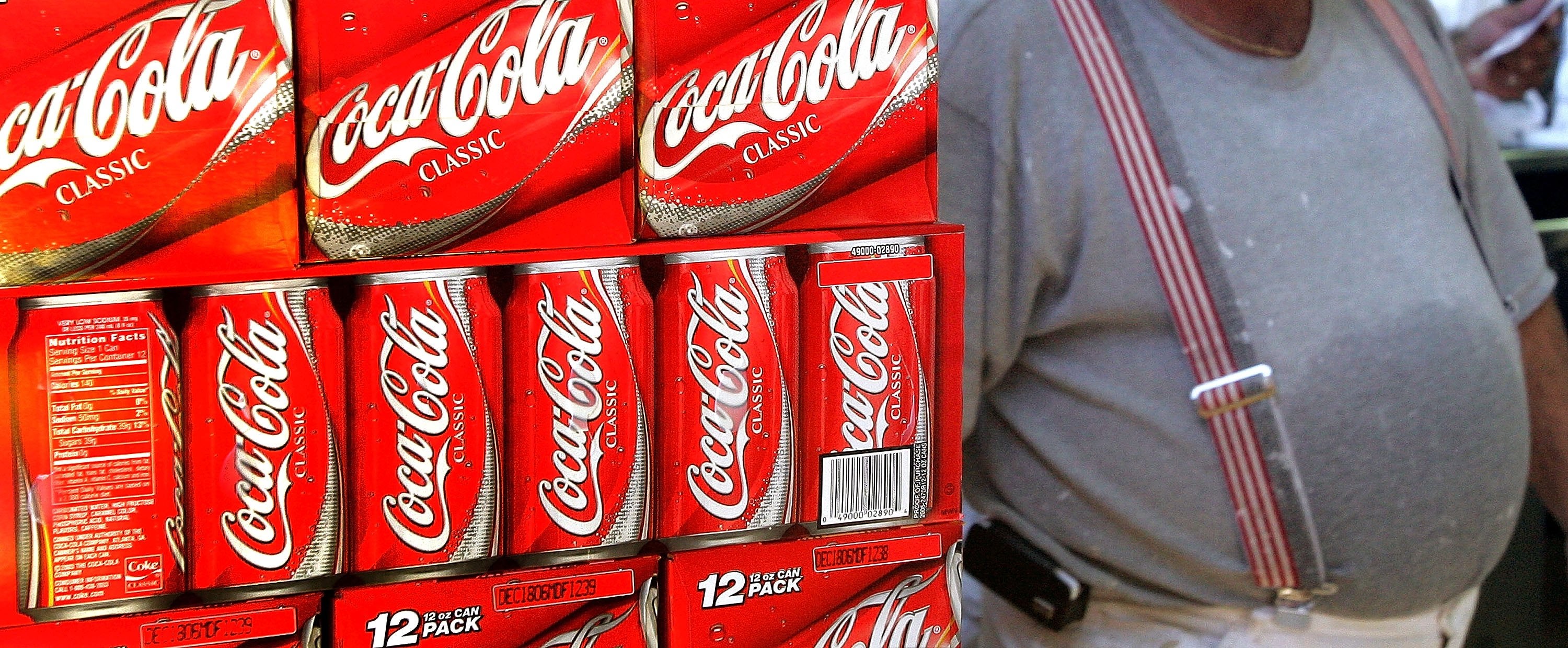Coca-Cola caught funding scientists who deflect blame for obesity away from sugary drinks
Coca-Cola has given millions of dollars to a group that promotes the idea that exercise, rather than a healthy diet, is the real key to weight loss

Your support helps us to tell the story
From reproductive rights to climate change to Big Tech, The Independent is on the ground when the story is developing. Whether it's investigating the financials of Elon Musk's pro-Trump PAC or producing our latest documentary, 'The A Word', which shines a light on the American women fighting for reproductive rights, we know how important it is to parse out the facts from the messaging.
At such a critical moment in US history, we need reporters on the ground. Your donation allows us to keep sending journalists to speak to both sides of the story.
The Independent is trusted by Americans across the entire political spectrum. And unlike many other quality news outlets, we choose not to lock Americans out of our reporting and analysis with paywalls. We believe quality journalism should be available to everyone, paid for by those who can afford it.
Your support makes all the difference.Coca Cola is funding a new organisation that is emphasising the importance of exercise over diet to a person's health, amidst concerns by health experts that the company is trying to deflect criticism of the health effects of its products.
The soft drinks company has been accused of providing financial and logistical support to the Global Energy Balance Network (GEBN).
This group promotes the idea that exercise, rather than a healthy diet, is the key to health and weight loss, claims which go against the word of critics who say that Coca-Cola's sugary drinks are contributing to the global obesity and diabetes epidemics.
Records uncovered by the New York Times show that GEBN's website is registered to and administrated by Coca-Cola. The GEBN's President, James O Hill, said that the website was registered under Coca-Cola's name because the group's members did not know how to do it, and asserted that the group is independent from the company.

Information on the group's website says that the 'energy balance' theory "recognizes that good health involves both diet and physical activity and can serve as a platform to help transform human civilization to achieve optimal health through sustainable solutions that also drive economic prosperity."
As reported by the paper, two universities that employ some of the GEBN's leaders disclosed that Coca Cola had donated $1.5 million (£963,000) in 2014 to the organisation.
And since 2008, Coke has given almost $4 million (£2.6 million) to two of the GEBN's founding members for various projects.
The revelations about Coca-Cola's involvement with the health group come amidst calls for action to be taken against sugary drinks, due to claims that they contribute significantly to obesity and contain little nutritional value.
In July, the British Medical Association (BMA) said that sugary soft drinks should be hit with a tax, part of a "useful first step" towards the long-term goal of taxing a number of products that fuel obesity.
The BMA claimed that such a tax could reduce obesity in the UK significantly, and added that the proceeds could be used to subsidise the costs of healthy fruits and vegetables.
Similar calls to tax sugary drinks have been made in the US. Berkeley, California, became the first city in the country to pass a tax on sugary soft drinks. Now, soft drink-drinkers in Berkeley pay an extra cent on every ounce (28mls) of soda they buy.
In New York, a ban on large servings of sugary drinks was strongly supported by then-Mayor Michael Bloomberg. It was passed, but was struck down by the New York Supreme Court in 2013.
It would have banned the sale of sugary drinks in servings bigger than half a litre - which would put an end to things like the 7/11 convenience store's Double Gulp size cup, which consumers can fill with 1.8 litres of their favourite soft drink.
The issue of food and drinks companies giving money to sympathetic groups has previously been pointed out by cardiologist Dr Aseem Malhotra, an outspoken critic of the food industry.

A study published this year in the British Journal of Sports Medicine, co-authored by Dr Malhotra, asserted that a poor diet was a much bigger cause of obesity than a lack of exercise, pointing out that despite little change in people's activity levels over the last 30 years, obesity has skyrocketed.
He is one of many academics who claims that food and soft drinks companies have incorrectly emphasised how physical activity can prevent people from obesity.
The study's text likened the actions of the food industry as “chillingly similar” to those used by the tobacco industry and said that endorsements of sugary drinks and the association of junk food with sport must stop.
“Let us bust the myth of physical activity and obesity. You cannot outrun a bad diet,” the authors say.
Join our commenting forum
Join thought-provoking conversations, follow other Independent readers and see their replies
Comments